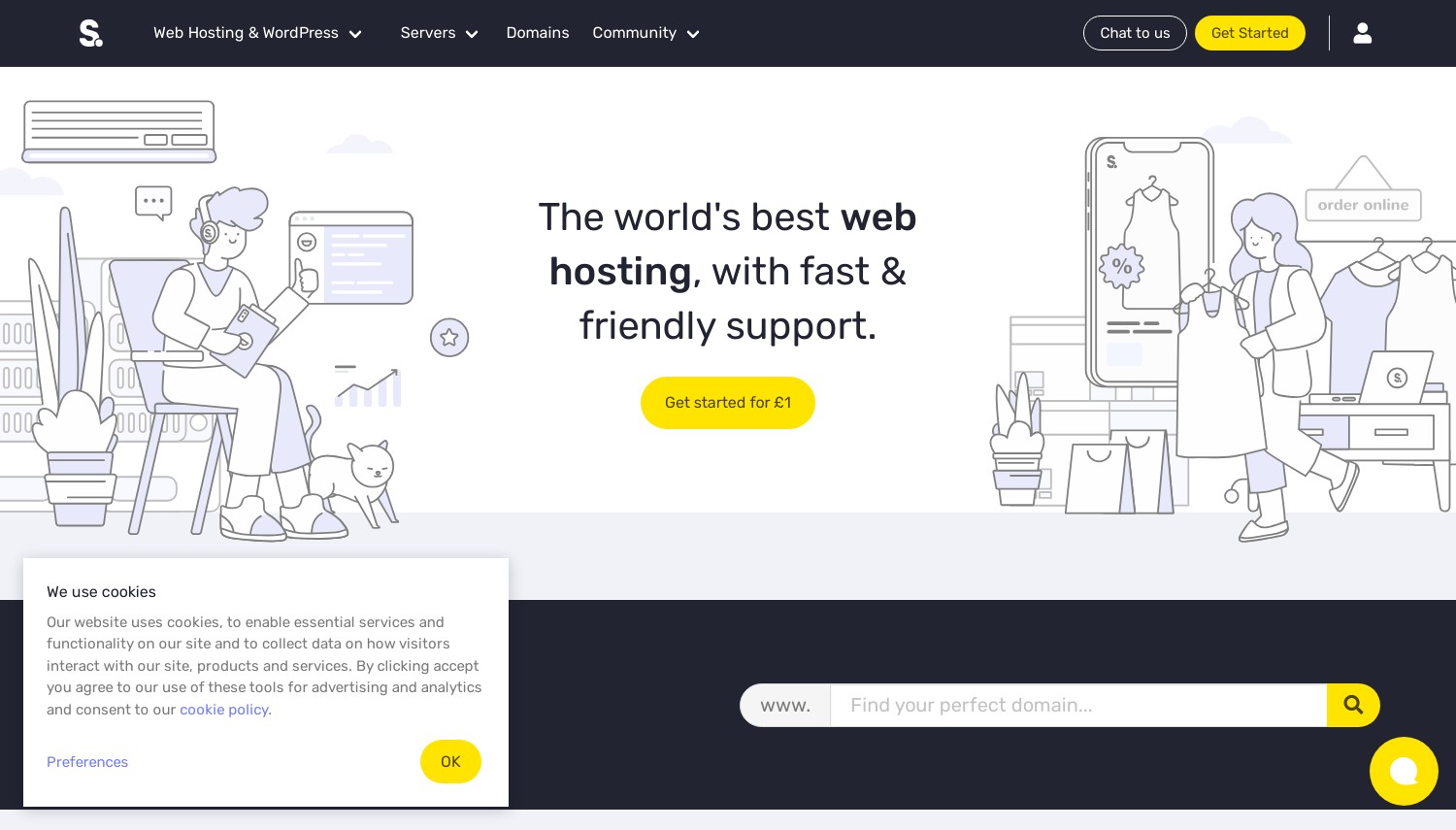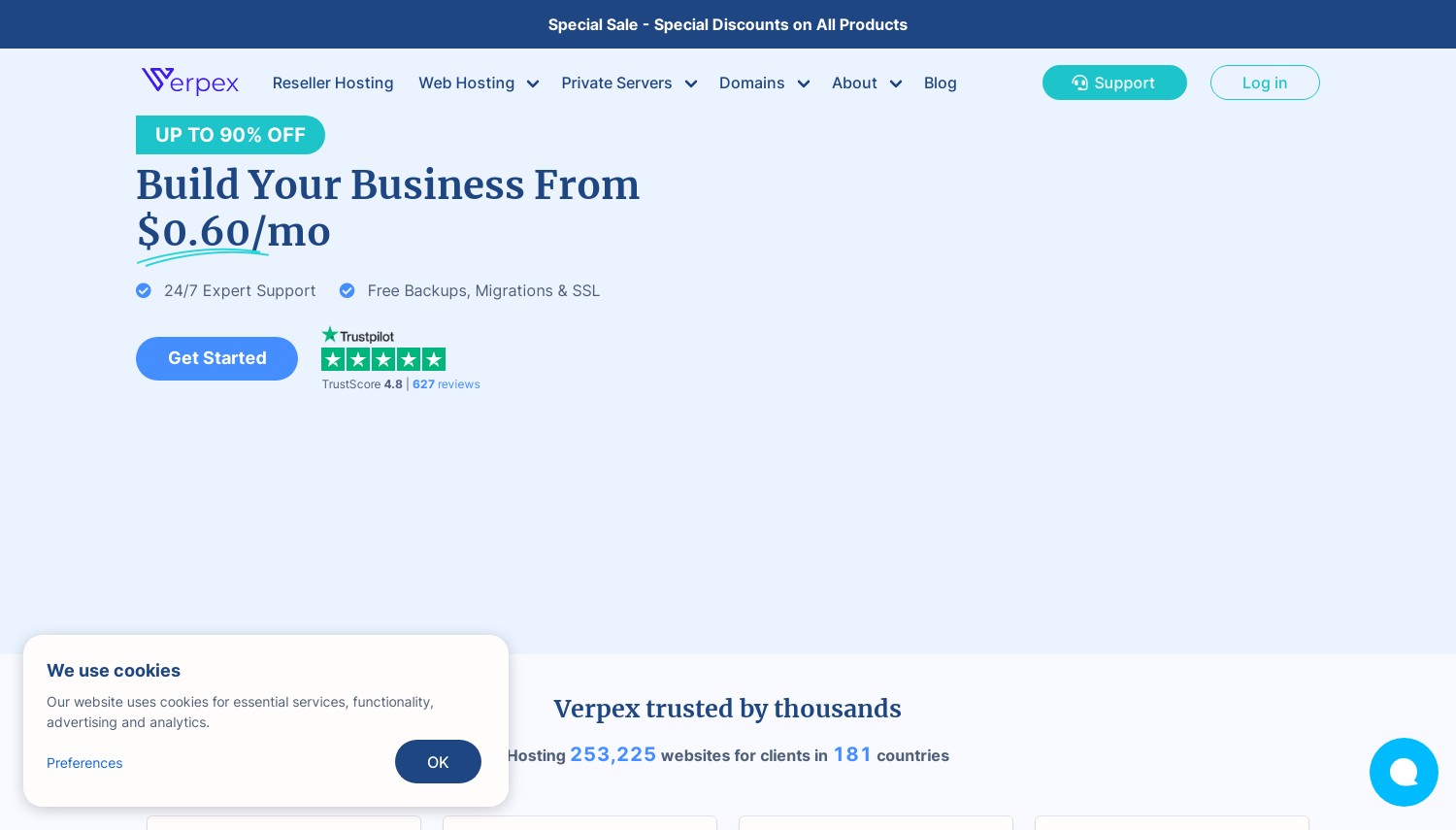On This Page: [hide]
Choosing the right web hosting service can seem overwhelming with the countless factors affecting cost and quality.
From server resources and uptime guarantees to the level of customer support, every aspect significantly influences the price and performance of hosting services.
This article dives into these critical components, demystifying the complexities behind web hosting pricing and setting the stage for an informed selection tailored to your website’s needs.
What Determines the Price of Web Hosting?
Understanding the factors that contribute to the cost of web hosting is pivotal for any website owner. The hosting market is diverse, with various providers offering a spectrum of plans that cater to different needs. Critical elements such as server resources, uptime guarantees, and the level of customer support significantly influence pricing. In this section, we’ll delve into how each of these aspects plays a role in determining web hosting prices, providing clarity on what you’re paying for.

The Role of Server Resources in Web Hosting Pricing
Server resources are the backbone of web hosting services. These resources, including bandwidth, disk space, and RAM, directly impact the performance and reliability of a website. High-demand websites require more resources to ensure smooth operation and fast loading times, which in turn leads to higher hosting costs. Bandwidth, for instance, determines how much data can be transferred to and from your website in a given time frame.
More bandwidth means your site can handle more visitors simultaneously without slowing down. Similarly, disk space and RAM affect how much content your site can hold and how quickly it can process requests. Providers calculate the cost based on the quantity and quality of these resources, making it a primary factor in the pricing plans.
Impact of Uptime Guarantees on Web Hosting Prices
Uptime, the measure of time a website is accessible online without interruption, is crucial for maintaining a positive user experience and high search engine rankings. Web hosts that offer high uptime guarantees often invest in quality infrastructure and technologies to minimize downtime. This includes employing redundant hardware and sophisticated monitoring systems to ensure servers run smoothly around the clock.
Offering such reliability often comes at a premium, as the infrastructure and maintenance required are substantial. As a result, plans with stricter uptime guarantees tend to have higher prices. However, investing in a plan with a strong uptime guarantee can pay off by maximizing site availability and visitor satisfaction.
How Customer Support Influences Web Hosting Pricing
Exceptional customer support is invaluable, especially when unexpected website issues arise. Quality support services can significantly affect web hosting prices. Providers that offer 24/7 support with multiple channels, such as live chat, email, and phone, often price their plans higher than those with limited support options.
The rationale behind this is the cost associated with hiring and training knowledgeable staff ready to assist at any moment. Access to expert assistance not only helps in resolving technical problems promptly but also in ensuring that your website runs efficiently. Thus, when choosing a hosting plan, it’s important to consider the level of support offered, remembering that the cost can reflect the swiftness and proficiency in handling issues that might impact your site’s performance.
In summary, the price of web hosting is a complex interplay of several key factors, each adding value to the service provided. Understanding these aspects helps in making an informed decision, ensuring that you pay for the features and support that best match your website’s demands. Whether it’s the server resources needed to power your website, the assurance of almost uninterrupted uptime, or access to prompt and effective customer support, each contributes to the overall cost but also to the quality of the web hosting service.
Exploring the Spectrum of Web Hosting Services
The breadth of web hosting services available today can bewilder many website owners. From free hosting options to luxury dedicated servers, understanding the spectrum of web hosting services is crucial for making an informed decision that aligns with your website’s needs and your budget.
Cheap Web Hosting: Is It Worth the Savings?
At first glance, low-cost web hosting seems like a no-brainer, especially for new or small websites looking to keep expenses at a minimum. However, the true cost of cheap web hosting typically reveals itself through unreliable uptime, slow website loading speeds, and inadequate customer support. This can result in negative impacts on your website’s search engine ranking and user experience, potentially costing you more in lost business opportunities in the long run.
Unveiling the Hidden Costs of Discounted Hosting Plans
Discounted hosting plans often come with hidden costs that are not immediately apparent. These can include fees for essential add-ons like SSL certificates, domain registration, and enhanced security features. In addition, lower-tier plans may limit your access to resources like bandwidth and storage, with significant charges for exceeding these limits. It’s also common for these plans to offer minimal customer support, meaning you could be left to fend for yourself in the event of technical difficulties.
The True Cost of Shared Hosting: Benefits vs. Limitations
Shared hosting is a popular choice for many entry-level websites due to its affordability. While it’s true that shared hosting can be a cost-effective solution, it’s important to weigh its benefits against its limitations. On the plus side, shared hosting is easy to use and does not require technical knowledge to get started.
However, the limitations include potential security risks and limited control over server settings. Websites on shared hosting can also suffer from poor performance during peak traffic times due to shared resources among numerous websites on the same server.
Why Premium Web Hosting Justifies Its Higher Price Tag
Premium web hosting services offer a level of performance, reliability, and support that justifies their higher cost. These services typically include managed hosting, dedicated servers, and Virtual Private Servers (VPS), each offering greater control and resource allocation compared to shared hosting. Moreover, premium hosting solutions often feature enhanced security measures, including regular backups and active monitoring, to protect your website against threats. For businesses serious about their online presence and looking for optimal site performance and security, the investment in premium web hosting is well worth it.
Choosing the Right Web Hosting Plan for Your Needs
Identifying an appropriate web hosting plan is a foundational step in building a website that serves your goals efficiently. The array of hosting options available can be overwhelming, from shared hosting, which is cost-effective for small sites, to more powerful dedicated server hosting for sites with heavy traffic. Determining the right fit involves a clear examination of your website’s requirements, potential growth, and the level of control you wish to maintain.
Evaluating Your Website’s Hosting Requirements
Every website has unique needs based on its size, audience, and the type of content it offers. Start by assessing your website’s current traffic and projected growth. A small blog with minimal traffic can operate effectively on a shared hosting plan, the most budget-friendly option. However, websites featuring complex applications, e-commerce platforms, or large volumes of traffic demand more power and resources, making VPS or dedicated hosting a better choice.
When to Consider Upgrading Your Hosting Plan
Website growth is an inevitable aspect of online success but may signal the need for enhanced hosting services. If you’re experiencing slow site load times, frequent downtime, or bandwidth limitations, these are clear indicators that your current plan is insufficient. Similarly, if you’re looking to implement more sophisticated website functionalities, such as online stores, forums, or membership areas, upgrading your hosting plan becomes essential to support these features adequately.
Ultimately, the decision to upgrade should be based on a thorough evaluation of your website’s performance, security requirements, and future growth prospects. Higher-tier hosting services not only offer better performance and security but also come with superior support options, ensuring your site runs smoothly, securely, and is well-positioned for continued growth.
How to Transition to a New Web Hosting Provider

Changing your web hosting provider is like moving to a new home in the digital space. It’s important to ensure the transition is smooth to avoid any downtime or loss of data. A carefully planned migration can significantly impact your website’s performance and user satisfaction. Here are steps to ensure a seamless shift.
Steps to Migrate Your Site Without Downtime
- Choose the Right Host: Start by researching and selecting a web hosting provider that fits your needs, considering factors such as uptime, customer support, scalability, and specific features relevant to your website.
- Backup Your Website: Before making any changes, backup all your website’s files, databases, and emails. This step is crucial for protecting your data during the transition.
- Transfer Files and Database: Upload your website’s files to the new host using an FTP client. For the database, export it from the old host and import it to the new one, adjusting configuration files as needed.
- Test Your Site: Before officially switching, test your site on the new host using a temporary URL or a subdomain. This ensures everything operates smoothly on the new server.
- Update DNS Settings: Once you’re satisfied with the performance on the new host, update your domain’s DNS settings to point to the new server. DNS changes can take up to 48 hours to propagate across the internet.
- Monitor the Site: After the DNS changes take effect, monitor your website for any issues. Keep an eye on loading times, functionality, and any possible errors that may arise.
Assessing the Long-Term Value of Your New Web Hosting Plan
While the initial cost is often a major factor in choosing a web host, assessing the long-term value of your new hosting plan is crucial. Look beyond the promotional offers to understand the real cost of the hosting over time. Factor in scalability, support, and features that align with your growth plans. A slightly higher cost upfront could mean better performance, fewer downtimes, and more robust security, all of which contribute to your site’s success and audience satisfaction.
Conclusion
Switching to a new web hosting provider can be a strategic move to boost your website’s performance, accommodate growth, and enhance security. By following the outlined steps, you can ensure a smooth migration that minimizes downtime and maintains data integrity. Remember, the goal is not just to find a web host but to partner with a provider that aligns with your long-term objectives, ensuring a stable and scalable online presence. With thoughtful preparation and the right choice, this transition can lead to significant improvements in your website’s overall success.

 Stablepoint
Stablepoint

 HostArmada
HostArmada
 Verpex Hosting
Verpex Hosting






